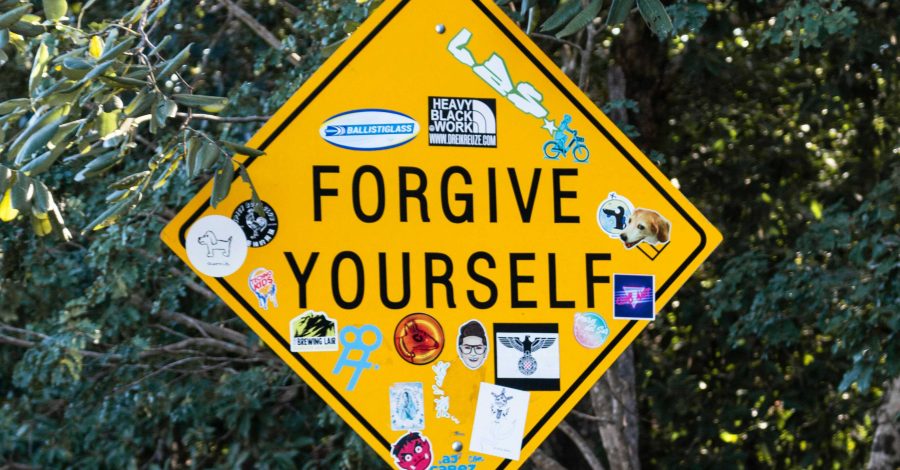The Power of Forgiveness is a potent skill that may lead to great inner liberation and serenity. The capacity to forgive involves more than simply putting aside the wrongs that have been done to us; it also involves recovering emotionally from the suffering brought on by the harmful deeds of others. Although it might be difficult, forgiveness is a necessary step to achieving inner peace and going on with one’s life.
Humans naturally experience resentment when they believe others have harmed or mistreated them. Yet resentment may be harmful to our mental health and well-being if we hang onto it. Bitterness, rage, and even physical health issues like high blood pressure and heart disease might result from it. Not forgetting or approving of the wrongs done to us is not what forgiveness entails. It’s not about absolving the culprit or downplaying the consequences of their conduct. Instead, it’s about finding a means to move on while releasing the emotional weight of bitterness.
Why Is It So Simple To Harbor A Grudge?
Being injured by someone, especially someone you love and trust, might elicit feelings of rage, despair, and bewilderment. Grudges loaded with hatred and hostility can take root if you linger on painful events or situations. If you allow bad sentiments to overpower happy sensations, you may become consumed by bitterness or a sense of unfairness.
Here are some guidelines for developing forgiveness and discovering inner peace:
Recognize Your Anxiety
Before you use the Power of Forgiveness on someone, you must first accept the grief and hurt that their actions have given you. It’s normal to get angry, wounded, or deceived by another person’s conduct. Let yourself time to analyze and validate your emotions.
Give Up Control
Our incapacity to forgive is frequently motivated by a need for control. We want the other person to suffer as much as we have or to apologize and make apologies. We cannot, however, control the acts of others, nor can we make them apologize or modify their behavior. Letting up on the urge for control may be freeing and beneficial in our quest for serenity.
Establish Limits
Forgiveness does not imply that we must continue to enable the other person to harm us. It is critical to establish healthy boundaries and convey our requirements to others. This might include restricting communication, establishing explicit expectations, or even terminating the connection entirely.
Self-care is Essential
Forgiveness is a time-consuming and energy-consuming process. It is critical to look for oneself at this time. Exercise, meditation, and spending time with loved ones are all examples of self-care activities. These activities can aid in stress reduction and rehabilitation.
Find Out The True Source
Has someone done something horrible to you and caused you a lot of pain or hurt you very badly?
Indeed, that’s not cool, and it’s not right, and you can admit it.
But how many times have you mentally recreated the same scenario?
Sometimes we become caught in the same setting or have the same sensation, which might be an indication of something.
Let’s assume someone made fun of you in public or at work. Perhaps your narcissistic, poisonous partner commented on your inability to achieve things. Perhaps your own parents have commented on your inability to perform things correctly, leaving you feeling embarrassed.
Experience Your Feelings And Let Go Of Your Grudge
Carrying a grudge may put a strain on your thoughts and emotions, generating stress and tension in your life. To let go of a grudge, you must first identify your feelings and acknowledge why you are hurt or angry. Let yourself feel those emotions without judging or criticizing yourself.
One effective technique to let go of a grudge is to convey your feelings to the person who has injured you. This does not imply that you must forgive or reconcile with them, but expressing your thoughts might provide closure and help you go ahead. Another strategy is to concentrate on gratitude and forgiveness. Rather than concentrating on the pain or anger, focus on the positive elements of your life and the things you’re grateful for. Forgiveness practice may also aid in the discharge of unpleasant emotions and the transition to a more optimistic perspective.
Your Power is Forgiveness
Ultimately, forgiveness is a powerful tool that may provide immense inner peace and freedom. It is a process that requires patience, empathy, and self-care. Through acknowledging our sorrow, letting go of control, practicing empathy, setting boundaries, practicing self-care, and seeking help, we may build forgiveness and attain peace. Remember that forgiveness is for both ourselves and the other person.
Related Blogs:
- Why Just LOVE on Valentine’s Day?
- Easy Sarvangana Asana for Healthier Mind, Body, and Soul
- How it feels to be anxious? Symptoms, Types, and Solutions
- Best Fashionable Masks in India to Try NOW!
- 10 Essentials for CALM MIND during COVID-19
- Best Routine for a Healthy Life – 9 Ways to Soothe Your Mind, Body, and Soul
- How to be happy inside out? Things That I have Learnt in my Life
- How to make your partner feel special – The right way!
- Feeling of dissatisfaction in Life – A Vicious Cycle that Wrecks!
- Rat Race in Office – When will you stop running this race?
- 9 Love Making Tips – How to spice up your relationship?
- Why it makes ’em Crazy insane when you Finally start loving yourself?
- How does it feel to be a person (who feels too much deeply)
- You must no longer hold back that part of yours (which is meant to shine)!
- Why can’t you grow up in the same environment you once got sick in?
- In the world of fake, be that authentic person that everyone needs
- When you actually realize time is absolutely limitless!
- Designing Life Accurately: Health, Relationships, Money, and everything else…



Leave a Comment